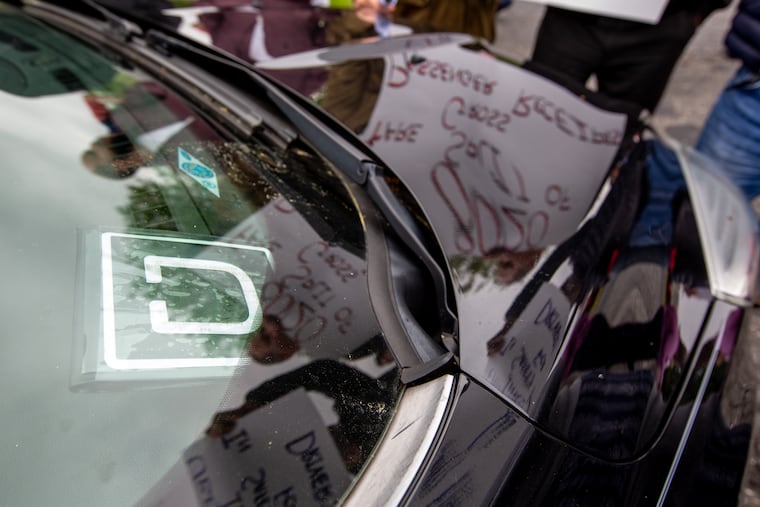Uber, Lyft to skip congressional hearings on their safety, labor practices
Uber and Lyft chose not to send representatives to a congressional inquiry aimed at examining their safety and labor practices.

WASHINGTON — Uber and Lyft have decided to skip a congressional hearing Wednesday aimed at examining their safety and labor practices, risking aggravating members of the committee who are threatening to press ahead regardless with new legislation.
The two companies have come under increased scrutiny in recent months over their treatment of drivers and their efforts to keep passengers safe, prompting a House Transportation and Infrastructure subcommittee to call a committee meeting and demand that the companies testify on the future of ride-hailing.
Both Uber and Lyft decided not to send representatives, however, according to company and Transportation Committee officials.
That prompted Transportation Committee Chairman Peter DeFazio, D-Ore., to say that the panel will press ahead with legislation that could encompass safety and labor for transportation network companies, or ride-hailing companies, with or without their cooperation, according to prepared remarks he planned to deliver Wednesday that were reviewed by The Washington Post ahead of the hearing.
Uber's and Lyft's "failure to appear at this hearing is a telling sign that they would rather suffer a public lashing than answer questions on the record about their operations," DeFazio's remarks say. He says they might be trying to avoid talking about safety problems or their labor records.
“For their long-term survival, and for any hope of ever partnering with agencies who utilize Federal funds, they are going to have to clean up their acts,” he adds.
The refusal by Uber and Lyft to appear to testify is the latest wrinkle in a long-running, rocky relationship between Silicon Valley tech companies and lawmakers in the nation’s capital. Many in tech believe that their companies are trying to improve the world, despite problems that may surface along the way. They believe that the government should stay out of regulating what they think is important innovation.
Just last week, Facebook chief executive Mark Zuckerberg agreed to testify on the social media giant's plans to launch a cryptocurrency, Libra, after lawmakers pressured him to do so. Previously, chief operating officer Sheryl Sandberg planned to testify.
Lawmakers' attention has been drawn to Uber and Lyft after reports about the companies' safety practices and treatment of riders.
Last month, The Post reported that employees in Uber’s special investigations unit said they were under pressure to put the company’s interests over the safety of passengers. Uber has said the unit’s role is to “provide specialized customer support to riders and drivers dealing with very serious real-life situations.” In August, The Post reported on what victims said were inadequate responses to sexual harassment and other types of misconduct on the Lyft app. Lyft vowed to make safety changes in the wake of that report and other scrutiny.
Both companies confirmed to the Transportation Committee this week that they do not plan to attend the hearing. Lyft confirmed Tuesday that it does not plan to attend the hearing. Uber did not respond to a request for comment.
In his prepared remarks, DeFazio criticizes the companies for their effect on urban congestion and emissions, and for opaque processes, such as their failure to publicize how they deactivate dangerous drivers or how many sexual assaults occur on the platforms.
The hearing, he said, should serve as “a wake-up call to the companies that have flooded our roadways with disruptive technologies and investor capital that their days of operating with little public policy and regulatory oversight in the transportation space are coming to an end.”